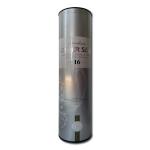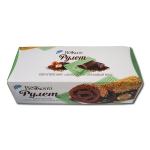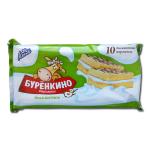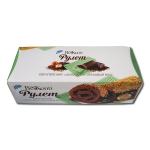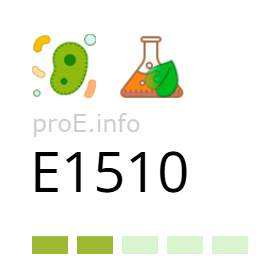
Other names for the additive (synonyms)
General Information
Ethanol (food additive E1510) is a colorless liquid with a characteristic pungent odor, the second member of the homologous series of monohydric alcohols. In the food industry and alcoholic beverages, it is often used in diluted form and referred to as “alcohol” or “ethyl alcohol.”
Ethanol can be obtained in two ways: through fermentation (known since ancient times) and through the hydration of ethylene at specialized facilities. The daily production capacity of such plants can reach 100,000 liters of anhydrous alcohol. The chemical formula of the substance is C2H5OH.
Additive E1510 is fully miscible with water, has antiseptic properties, and acts as a solvent for many organic substances. In the food industry, it is mainly used as a preservative, carrier, or the main component of alcoholic beverages.
Effects on the Body
Risks of additive E1510
Additive E1510 has a significant harmful effect on the human body. The degree of impact depends on the dose, concentration, and route of entry. Ethanol can exert both narcotic and toxic effects.
Ethanol easily penetrates biological membranes and is rapidly absorbed into the bloodstream. Consuming ethanol in large quantities causes irreversible damage to the liver and kidneys, worsens the condition of the cardiovascular system, and disrupts brain function.
Excessively high doses can lead to poisoning and may be fatal. Alcohol abuse contributes to the development of alcoholism.
The U.S. Food and Drug Administration (FDA) classifies ethanol as a substance Generally Recognized As Safe (GRAS) for specific uses in the food industry. For example:
- As an antimicrobial agent in pizza crust at concentrations up to 2.0%.
- As a preservative in croissant fillings at concentrations up to 0.3%.
When used in small amounts as a processing aid in the food industry, additive E1510 is considered safe for consumption.
Benefits of additive E1510
Ethanol can act as an antidote in cases of poisoning with methanol, ethylene glycol, and other toxic alcohols.
Although additive E1510 has antiseptic properties, the benefit of alcohol consumption “for prevention” in any dose has not been scientifically proven.
Some researchers suggest that the acceptable daily intake of additive E1510 in terms of pure ethanol could be 7 g per day.
Uses
In the food industry, additive E1510 is used in alcoholic beverages (vodka, whiskey, cognac, etc.). Small amounts of ethanol are present in naturally fermented drinks that are not considered alcoholic, such as kvass, koumiss, and homebrewed drinks.
Additive E1510 is also used as a solvent for food flavorings and as a preservative in the baking industry.
Outside the food sector, ethanol is widely used:
- in medicine — as an antiseptic and drying agent, in warming compresses, for preparing tinctures, and for cooling in cases of fever;
- in the chemical industry;
- in the production of cleaning agents and detergents;
- in perfumery and cosmetics.
Legal Status
Additive E1510 is approved for use in the food industry in the European Union, the United States, Ukraine, and other countries, with established limits for its content in various product categories.
